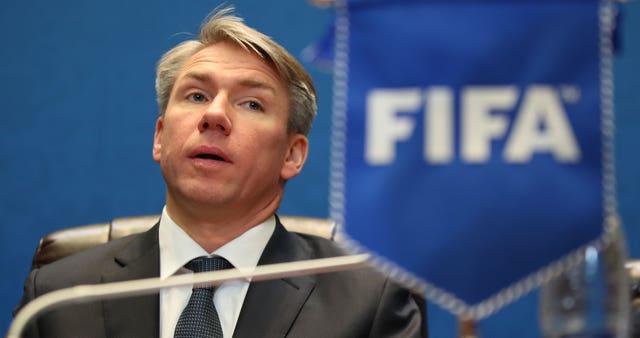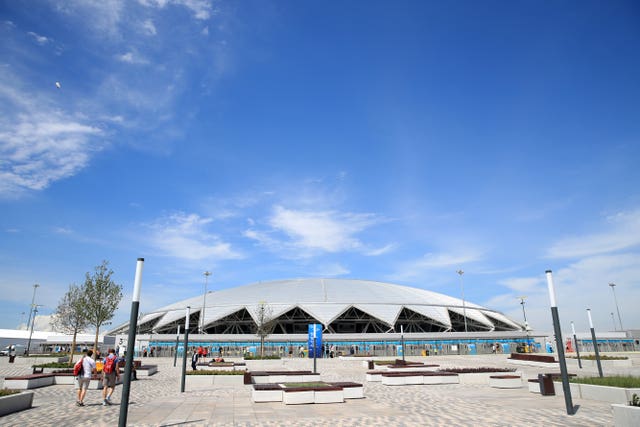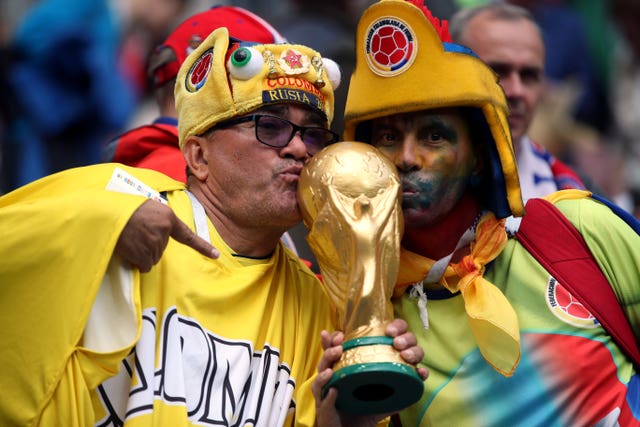
The Russian organisers of the 2018 World Cup believe the tournament has changed global perceptions of their country and boosted Russia’s belief in itself.
Speaking a day after FIFA president Gianni Infantino called Russia 2018 the “best ever World Cup”, the bosses of the local organising committee, chairman Arkady Dvorkovich and chief executive Alexey Sorokin, said they were delighted with the feedback and proud of their team’s “perfect job”.
“This World Cup has been truly successful, that is the opinion of everyone who has travelled around the country taking part in the festival, the fans, players and other participants,” said Dvorkovich, who was Russia’s deputy prime minister for six years until May.
This #WorldCup has been FUN!
Here's some of the quirkiest parts of the tournament… 🤙
👀 TV listings 👉 https://t.co/xliHcxWvEO 📺 Highlights 👉 https://t.co/LOdKDX2Cwn pic.twitter.com/xCBfOSSOom
— FIFA World Cup 🏆 (@FIFAWorldCup) July 13, 2018
“Everyone involved showed our true face, that we are an open, welcoming country.”
Asked if the success of the tournament will change Russia’s image abroad, Sorokin said: “The simple answer is we’ll see. I think the image is now closer to the reality.
“Hopefully we’ll continue to do the same things that we’ve done during the World Cup and it will change Russia and change attitudes towards Russia.
“We initially had a tagline that the World Cup would be a ‘journey of discovery’ and I think it was for many people. We could see on social media that people were astonished by the beauty of the country and the nature of the people.

“It not only changed the perception but it changed us. We’ll certainly analyse it more in the coming months but we now believe we can. We can play football, we can organise events of a global magnitude, we can.”
Just as Infantino had done on Friday, the two men highlighted a list of impressive numbers on tickets sold, journeys made and merchandise sold, and they also noted Russia’s run to the quarter-finals and the tournament’s overall quality.
Russia’s official World Cup budget was almost £9billion but both Dvorkovich and Sorokin stressed this should not be seen as money spent on a month of sport but infrastructure investments that were brought forward.

Dvorkovich, an economist by trade, said: “The infrastructure would all have been built at some point, perhaps not to FIFA’s strict criteria and timetable, we would have done it slower.
“But it was all coming – the hotels, the transport improvements and so on. So we now have the potential to develop tourism.”
Sorokin expanded on this, saying the local organising committee has been working with American consultancy firm McKinsey to assess the World Cup’s economic impact on Russia and was bullish on the return on investment.
Saying “we didn’t build anything we don’t need”, Sorokin explained there were legacy plans for the 12 stadiums, the training bases would be used by grassroots and youth clubs, and the improvements made to the transport network and hotel stock would benefit the economy, particularly in terms of boosting tourism.

Asked why more fans did not travel to Russia this summer from Europe, Sorokin acknowledged that the ticket sales paint a clear picture: this was a largely Latin American affair in terms of foreign visitors.
“We can only speculate as to the reasons why they didn’t come in huge numbers to support their teams but things changed along the way,” he said.
“At the start we had only issued 18,000 FAN-IDs (identity cards fans needed to buy tickets and enter the country) to England but during the tournament we did 12,000 more. That means people escaped prejudices they might have had and came to support their team.”
On whether Russia was now ready to bid to host a Summer Olympics, as has been suggested in the Russian media, Dvorkovich said: “I’ve already said Russia is worthy of hosting an Olympics but when and where is up to the Russian Olympic Committee and head of state to decide.
“It’s perhaps a bit early to talk about that but I’m sure we’ll host lots of other sports events.”


Comments: Our rules
We want our comments to be a lively and valuable part of our community - a place where readers can debate and engage with the most important local issues. The ability to comment on our stories is a privilege, not a right, however, and that privilege may be withdrawn if it is abused or misused.
Please report any comments that break our rules.
Read the rules here